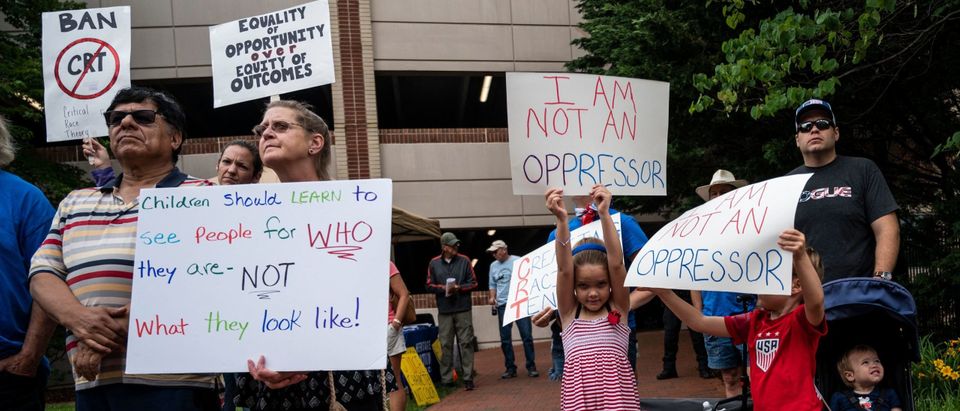In March of 2020, I began working with parent groups across Indiana to determine how we could keep our children learning as schools shut down due to the COVID-19 pandemic. At 36 different school board meetings and in various Facebook groups, I have spoken with thousands of parents from dozens of states.
They’re not ideologues seeking violence for perceived enemies — they’re concerned parents unsure about everything in public education, from medical safety to learning loss, political agendas and career readiness. What’s being portrayed by teachers unions is completely and utterly false; the concerned parents of the United States, from both political parties, are not domestic terrorists in any way.
I haven’t seen a single call for violence. You’re far more likely to see political memes, updates and news, spotty rumors on classroom teaching and state legislatures, and invitations to come attend public forums and school board meetings. Many of these groups ask parents to sign up based on topic and issue, providing them with data and reports to cite during speaking engagements.
Many of these parent communities have spawned larger action groups, like Fisher’s One in Indianapolis which fosters community research, respectful dialogue between teachers and school staff and the vetting of future candidates for school board elections. While some organizations like Purple 4 Parents seek bipartisan support against specific school curricula and pedagogy, many groups simply attempt to keep parents informed.
Even the most “activist” members in these groups have been exceptionally gracious to political and administrative opponents. In Greenfield, Indiana, a school board scheduled a parent financial college-planning meeting during the public forum, to the frustration of the local parenting group. One of the group’s leaders, a self-proclaimed conservative activist, respectfully asked the superintendent of the district to schedule the future meetings at separate times to maximize attendance. I found out from a private meeting days later that the superintendent was making every effort to honor that request.
There have been isolated instances where parents crossed the line with school board members. In Sarasota, Florida, a group of parents stood outside a school board member’s home, demanding she come out and resign. In every case so far, local law enforcement has dealt with the situation. Intimidation of public officials and servants is and will always be shunned by any respectful member of American society. Local law enforcement in the Midwest has been a phenomenal mediator, even when school boards make a questionable call to expel a parent from meetings (as occurred in Carmel, Indiana, earlier this autumn).
Labeling any who challenge school board policies as “domestic terrorists” is a disturbing disregard of the First Amendment of the U.S. Constitution concerning both speech and assembly. The needs of the various communities in the U.S. are better handled by local officials who are directly responsible and accountable to their individuals, families and communities. As long as parents are peacefully expressing their concerns, they have every right to discuss, speak, and protest at local school board meetings.
I’ll continue to keep an eye out for these “domestic terrorists” the National School Boards Association (NSBA) have elected to paint as a target in the American psyche. So far, I haven’t seen any. I see scared and concerned parents, disconnected from the education their children are supposed to be receiving. I see two groups desperate for communication and reconciliation — ripped apart by a national media and federal government that would rather mandate a unilateral political viewset via fear and intimidation than to open the Overton window and encourage dialogue.
Anthony Kinnett is a curriculum developer and coordinator in Indianapolis. He is the co-founder and owner of The Chalkboard Review and has written for National Review, The Federalist, The Daily Caller, and the Washington Examiner. @TheTonus


